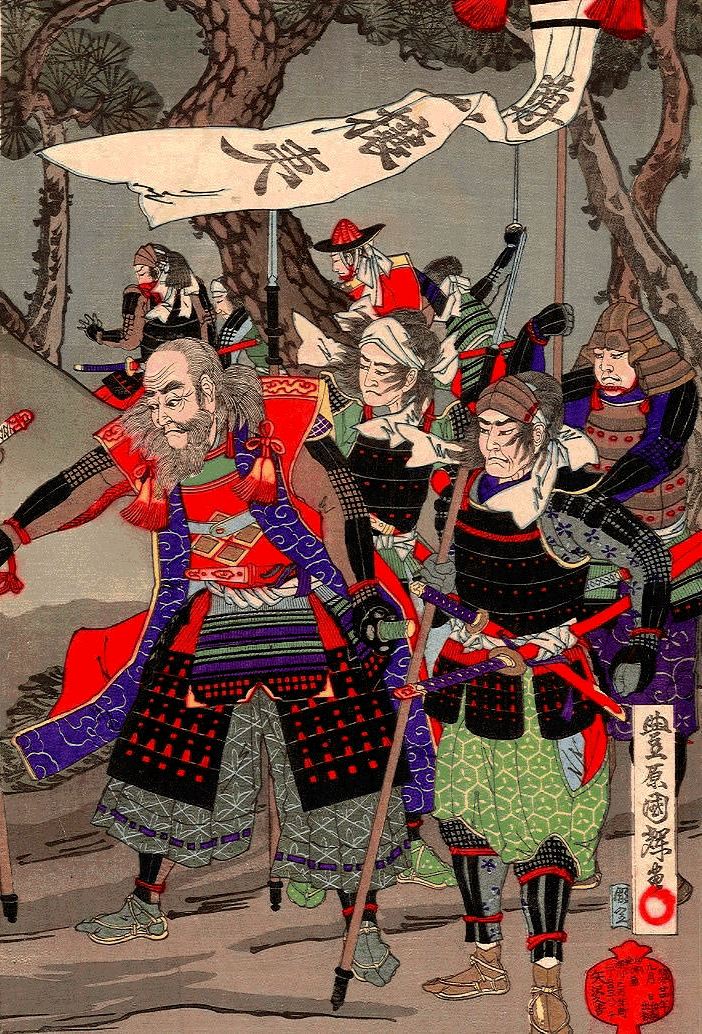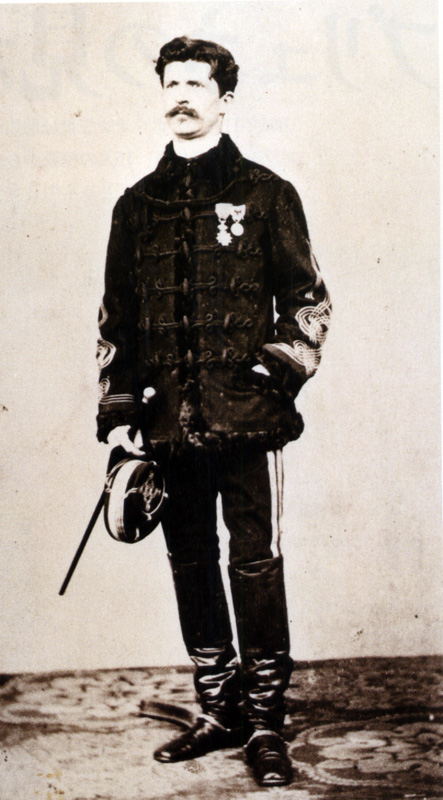Rewatching The Last Samurai, which is based on the Satsuma Rebellion of 1877. Funny thing, folks have claimed it's a white savior narrative but the *real* problem with this film is not that it depicts the white guy too well, but that it's way too favorable to its Japanese hero.
Yes, the poster had Cruise's face (he's the bigger star) but the "last samurai" is not Tom. It's Ken Watanabe's character, based on Saigo Takamori, famously known as the last samurai. Cruise didn't save the day either. He just comes to appreciate their culture and fights w/ them.
As for the samurai he fights with, these were not, as depicted, noble warrior poets defending their honor. Putting aside the orientalist homage to samurai in general, *these* guys had more in common with the dudes below.
That is, racists willing to kill over their loss of privilege. They opposed the Meiji modernization reforms—and yes, they did use guns, I mean of course they did, they were professional killers—chiefly because it meant a loss of status for themselves.
And yes, they were incredibly racist. They even went into battle with their own version of the Confederate flag, the "Sonno joi" banner (尊皇攘夷, Revere the emperor, expel foreigners). Sonno joi was its own movement, adopted from China, where
Duke Huan of Qi expelled the Four Barbarians (四夷 siyi), itself an interesting term. China is, of course, the Middle Kingdom and those north/south/east/west, ie everyone else, were barbarians to be conquered. Even Confucius himself approved of Huan's siyi policy.
By the way, Cruise's character is based on real life. That is, the story of Jules Brunet, the French Army officer who fought in in the Boshin War. Not a samurai, though. A lot has been said about Japan's ties to Prussia and Germany, but Japanese-French ties were just as key.
In fact, Omura Masujiro, the so-called father of the Imperial Japanese Army, based it on the Napoleonic French Army. Anyway, back to the film...

 Read on Twitter
Read on Twitter






